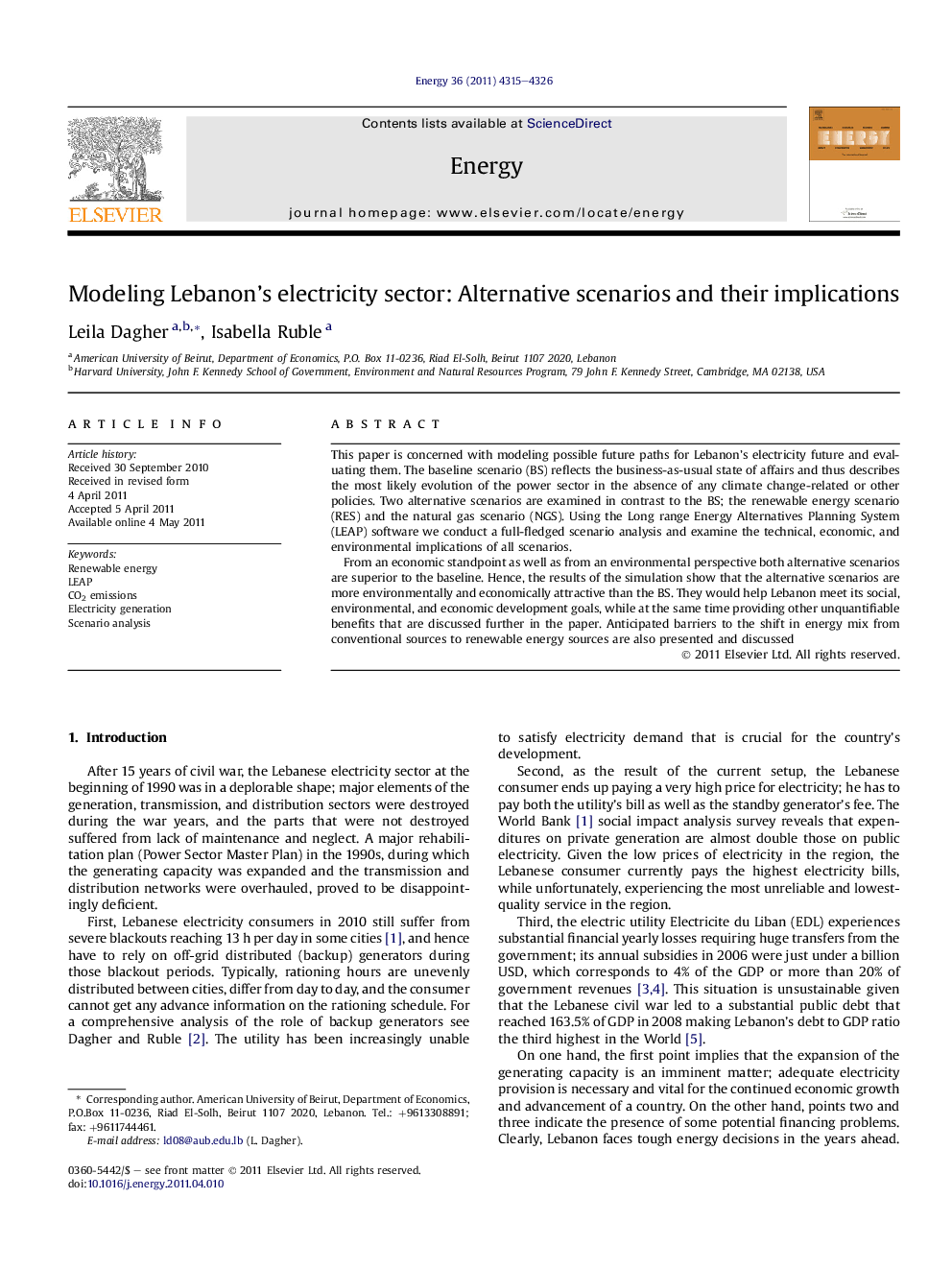| Article ID | Journal | Published Year | Pages | File Type |
|---|---|---|---|---|
| 1734193 | Energy | 2011 | 12 Pages |
This paper is concerned with modeling possible future paths for Lebanon’s electricity future and evaluating them. The baseline scenario (BS) reflects the business-as-usual state of affairs and thus describes the most likely evolution of the power sector in the absence of any climate change-related or other policies. Two alternative scenarios are examined in contrast to the BS; the renewable energy scenario (RES) and the natural gas scenario (NGS). Using the Long range Energy Alternatives Planning System (LEAP) software we conduct a full-fledged scenario analysis and examine the technical, economic, and environmental implications of all scenarios.From an economic standpoint as well as from an environmental perspective both alternative scenarios are superior to the baseline. Hence, the results of the simulation show that the alternative scenarios are more environmentally and economically attractive than the BS. They would help Lebanon meet its social, environmental, and economic development goals, while at the same time providing other unquantifiable benefits that are discussed further in the paper. Anticipated barriers to the shift in energy mix from conventional sources to renewable energy sources are also presented and discussed
► We model possible future paths for Lebanon’s electricity future and evaluate them using LEAP. ► Three scenarios are examined; the baseline, the renewable energy, and the natural gas scenario. ► Alternative scenarios are more environmentally and economically attractive than the baseline scenario.
